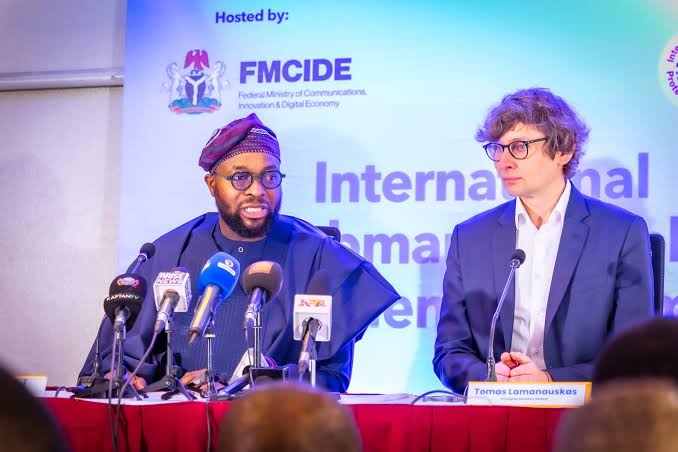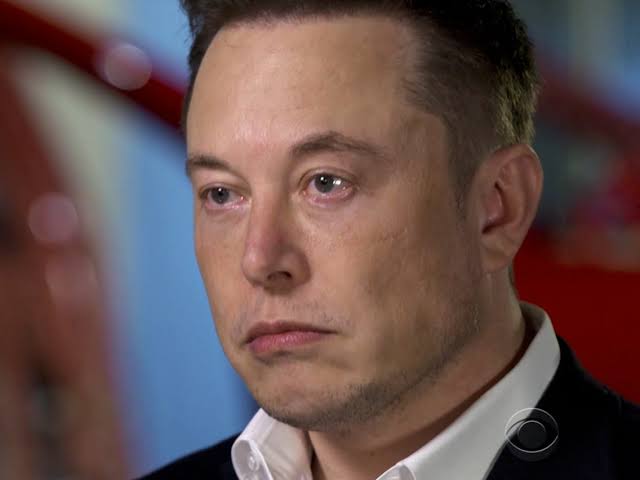Bosun Tijani, Nigeria’s Minister of Communications, Innovation, and Digital Economy, has announced that the country will host the first global summit focused on submarine cable resilience.
Gatekeepers News reports that the summit, scheduled for February 26 and 27 in Abuja, aims to lay the groundwork for a more robust global economy.
During a press conference on Tuesday, Tijani highlighted the importance of the event, which will convene experts to discuss the safeguarding of critical digital infrastructure.
He also acknowledged the crucial support from the International Telecommunication Union (ITU) in bringing this summit to fruition, expressing his appreciation to Tomas Lamanauskas, the ITU’s deputy secretary-general, for the organization’s involvement.
“About 90% of the traffic that we get on the internet, the data that actually supports the internet that we use, is based off of what we call sea cables,” Tijani noted.
“This is not something that the general public are typically aware of. And the challenge is that as we continue to drive and push a stronger digital economy, it is important that we ensure the resilience of that infrastructure that is the real backbone for the digital economy.
“Nigeria, as you know, is on a drive to drive our economy towards becoming a $1 trillion economy, which is a commitment that the president has already made, and the entire cabinet is working towards. And we see a strong role for digital technologies in that process.
“That will also truly improve our sectors, make them a lot more competitive, to drive the value that we want to see for society.
“The digital economy has a role to play, which is why whatever we believe will strengthen that agenda is for us important.”
Tijani stressed that no economy stands alone in today’s world, adding that global leadership must be taken to secure critical infrastructure for economic stability.
On his part, Lamanauskas noted that 50 countries will converge at the event, marking the first global gathering focused on strengthening submarine cable resilience.
“Now, we are expecting around 50 countries here, present from the current planned attendees,” he said.
“However, I would say this is a multiplier, in fact, you know? This meeting brings together the experts, so this is the core.
“These are the people who already have expertise, who already have something to contribute, who already have ideas on how to move that discussion forward.”
He said the summit will host around 250 experts from governments, private sector, and academia to discuss strengthening cable resilience and assess the current status of submarine cable resilience.
Lamanauskas reiterated that submarine cables carry the bulk of internet traffic, connecting continents digitally and supporting satellite traffic.
He said disruptions to these cables can severely impact various sectors, including finance, social media, cloud services, and entertainment.
“This is partly what inspired these discussions here were the cuts that happened in West Africa in March last year that affected 13 countries in West Africa, because the four submarine cables were cut off the coast here, because of the natural causes of the underwater earthquakes,” he said.
“But this happens all around the world. Last year, we also had important cable cuts in the Red Sea that basically cut 25% of traffic in Asia and Europe.
“We had important cuts on the East Africa coast with a number of countries affected.
“We have some countries like Tonga, for example, in the middle of the Pacific, fully cut off from the world because those submarine cables were cut.
“So this really affects people all over the world, and that’s why it really is commendable that Nigeria is showing leadership not only to fix the challenges here, but also to use that to bring the world together.”
The ITU secretary-general said the summit will cover key areas, including best practices, crisis management, innovations in technology, and legal frameworks.
Lamanauskas said the event will also ensure countries have diversified infrastructure to prevent global disconnections, concluding with a declaration that is being finalised.









